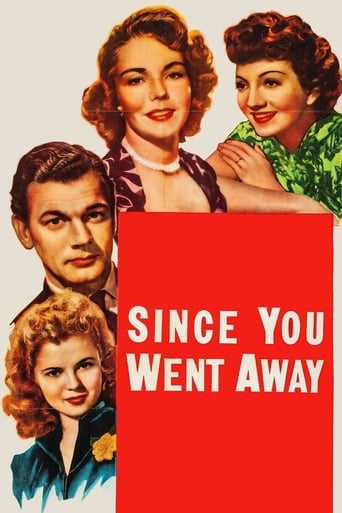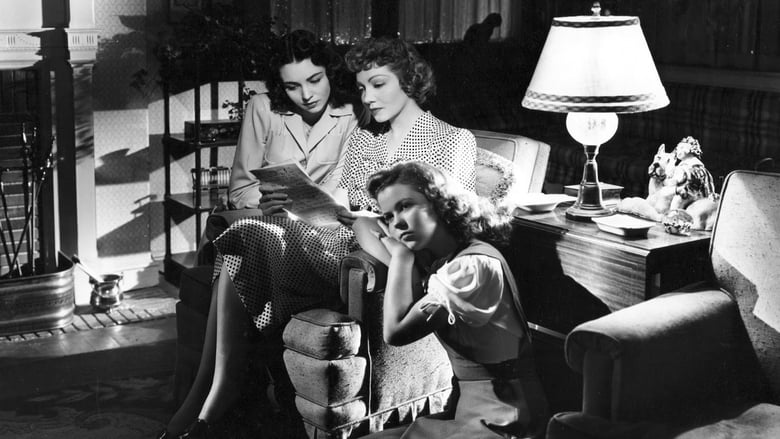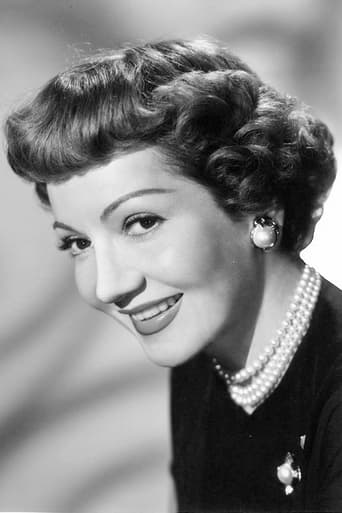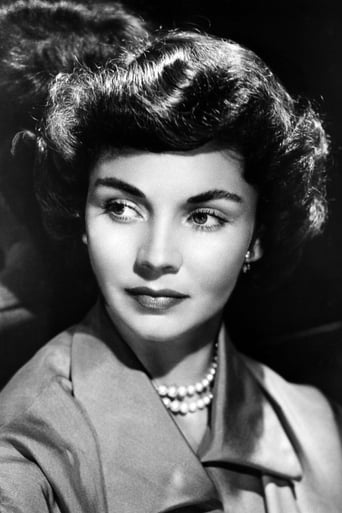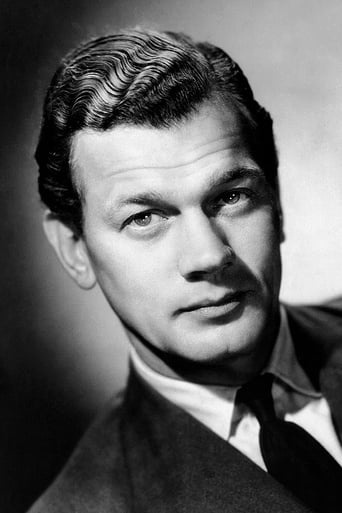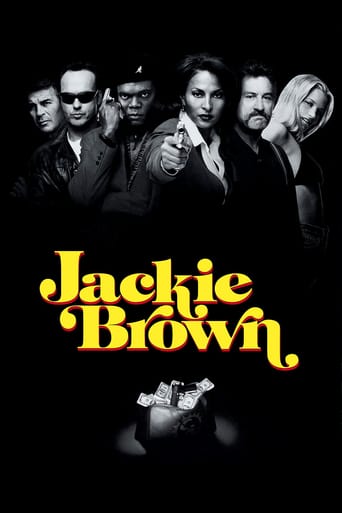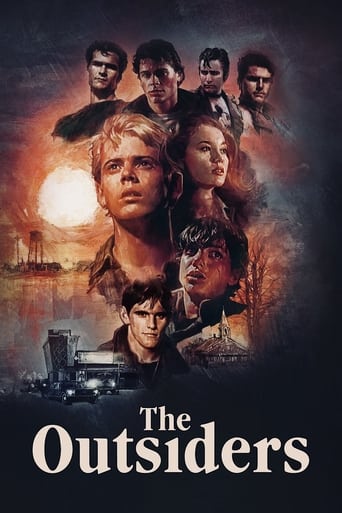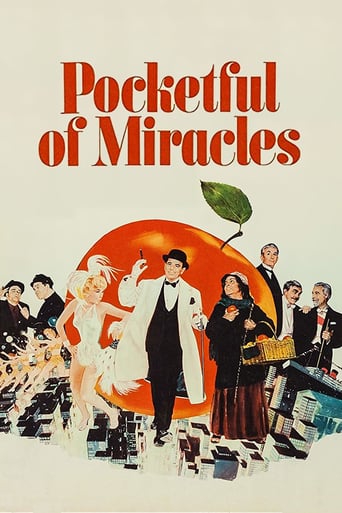Since You Went Away (1944)
While husband Tim is away during World War II, Anne Hilton copes with problems on the homefront. Taking in a lodger, Colonel Smollett, to help make ends meet and dealing with shortages and rationing are minor inconveniences compared to the love affair daughter Jane and the Colonel's grandson conduct.
Watch Trailer
Free Trial Channels
Cast


Similar titles
Reviews
Am I Missing Something?
A different way of telling a story
Mostly, the movie is committed to the value of a good time.
This is a gorgeous movie made by a gorgeous spirit.
Copyright 14 September 1944 by Vanguard Films. A Selznick International Picture-Vanguard Films Production. New York release at the Capitol: 20 July 1944. U.S. release (through United Artists): 20 July 1944. U.K. release: 16 April 1945. Sydney release at the Regent: 6 July 1945. Australian release: 12 July 1945. 15,325 feet. 20 reels. 170 minutes.SYNOPSIS: Advertising executive goes off to war, leaving his wife and two teenage daughters to cope on the home front.NOTES: Film was begun by photographer George Barnes who was replaced by Stanley Cortez who was himself replaced by Lee Garmes. Andre De Toth directed several sequences (not that it matters)COMMENT: If ever a film was deliberately designed to defeat the auteur/director-is-supreme theorists, such a film would seem to be Since You Went Away. Three guiding hands are very much in evidence on the picture. None of them belong to director John Cromwell.Hand number one of course is producer David O. Selznick. His first film since Rebecca, produced on a scale to bear comparison with Gone With The Wind. Script by Selznick - and a very soapy, women's picture script it is too, though it has a degree of astringency, almost cynicism, which was probably completely absent from the original Ladies Home Journal story by Margaret Buell Wilder. The plot is so familiar as to be trite, but Selznick not only keeps it moving and dresses it up with a lot of production values (headed by an enormous cast), but he has rounded the characters sufficiently so that even a dull actor like Joseph Gotten can appear almost pliable and interesting. Miss Colbert naturally has a typically weepie role, while Miss Jones grimaces and hogs the camera (in some unflattering close-ups by Lee Garmes) and Mr Walker puts on his nice and shy but oh-so-amiable act. Woolley has a small but typical role which he manages with his usual bite, despite the thinness of his material. Shirley Temple has little to do but stooge for the other members of the cast. Hattie McDaniel over-acts, Agnes Moorehead is a caricature and Albert Basserman is allowed to make a thespic milestone out of his one, unimportant scene. Lionel Barrymore is properly restrained though his role is little more than a walk-on. Nazimova delivers the inscription on the Statue of Liberty (The New Colossus by Emma Lazarus) with taste and skill. The rest of the cast is a movie buffs delight, though Ruth Roman is difficult to spot in her brief walk-on at the railroad station (she has her back to the camera, though turns her head in profile to deliver her line) and Rhonda Fleming is but briefly glimpsed at the dance.The film has two distinct visual styles. Since You Went Away was shot in chronological order, so it is easy to spot where the break occurs. The first 30% of the film is photographed in a forced (and therefore grainy) deep dimensional style. Cortez was forced into this maneuver by the fact that the house set was constructed with no wild walls. Though built in the studio, it was constructed as solidly as a real house. When Garmes took over in the bowling alley sequence (Cortez was called up), he adopted an altogether different style, deciding not to try to light the scenes fully and evenly as had Cortez, but to use natural, low-key effects. He also uses close-ups much more than Cortez. He makes the film much more attractive to look at. Aside from the visual appeal of the more dramatic lighting, he uses the camera more fluidly and fluently.These are the three guiding hands on the film: Selznick who wrote it and supervised every aspect of its production. Cortez and Garmes who gave it two distinct visual styles. All Cromwell seems to have directed is the acting. Despite its great length and its dated, novelettish subject matter, Since You Went Away is more entertaining than a 1987 audience might expect - even without its superlative production values and lustrous Max Steiner score.OTHER VIEWS: Ridiculous as it may seem to-day, this film was actually intended and ballyhooed by Selznick as a contemporary rival to Gone With The Wind - which it most assuredly is not - not in any department - not in script - cast - direction - or production values. True, Selznick more than doubled his money - the film's domestic rentals of nearly $5 million contrast felicitously with its negative cost of $2 million. And it says much for the power of the Selznick name that Since You Went Away was actually nominated for 8 Academy Awards, including Best Picture (lost to Going My Way); Best Actress - Claudette Colbert (lost to Ingrid Bergman in Gaslight); Best Supporting Actor - Money Woolley (lost to Barry Fitzgerald in Going My Way); Best Supporting Actress - Jennifer Jones, would you believe? (lost to Ethel Barrymore in None But the Lonely Heart); Best Photography - another incredible nomination as there is absolutely no dramatic or atmospheric rhyme or reason for the sudden switch from high to low-key lighting a third of the way through (lost to Laura); Best Sets - these too are piddling compared to Gone With The Wind (lost to Gaslight); Best Film Editing - very competent but in no way remarkable as the shots were obviously dictated by the director and cameraman (lost to Wilson); Best Scoring of a Dramatic or Comedy Picture (won!). At least the Academy rank-and-file members had more sense than the governors. Since You Went Away is basically a woman's picture, but even the most indulgent and time-heavy ladies must have found 170 minutes far too elaborate a treatment for such thin material. It far out-stays its welcome, despite the best measures of some of the players and photographer Lee Garmes. - J.H.R. writing as George Addison.
What's different about this war-era film is that it's not about military battles, but rather about the emotional battles faced by those left at home during the war. And it does a particularly fine job in portraying the long wait to see the end of the war and see if loved ones were coming home. I can't really think of another film that accomplishes this, and subtlety demonstrates the little things that Americans endured throughout the war. It's a long film, but then again, it was a long war.I should mention one thing that I found annoying -- the lovely score by Max Steiner -- which won him an Academy Award. A wonderful score...but too loud and overpowering, nearly drowning out some of the dialog. I was reminded of an Oscar broadcast years ago when Dean Martin and Raquel Welch were presenters for the best score award (pun obviously intended). Welch said that it had been noted that the best score enhances the film while not being noticed. To which Dean replied, "To which the late Max Steiner said, 'Then what the hell good is it.'" That may have been an accurate story based on this film.David O. Selznick created a wonderful film here, based on a true story. The performances were superb, with the possible exception of Shirley Temple as the younger daughter. Claudette Colbert is simply superb, and of course, that's not unusual. Jennifer Jones -- not usually a favorite of mine -- was wonderful as the older daughter. Monty Woolley doesn't play a buffoon in this film, but instead turns in a sensitive performance as an uncle of a man who is about to go off to war. Joseph Cotten is believable as a family friend who is a bit of a Navy playboy. And the wonderful Hattie McDaniel has, perhaps, her best role since GWTW. Agnew Moorehead played a real b---- in this film...not an appealing role at all.This is a memorable film not to be missed.
David Selznick cast the superb Claudette Colbert in his return film after winning back to back Oscars for Gone With The Wind and Rebecca, and was rewarded by the lovely star giving one of her trademark professional performances. While we all rave over the highly charged performances of Bette Davis, Susan Hayward, Barbara Stanwyck, Miss Colbert along with Irene Dunne, Jean Arthur is an actress whose body of work deserves review and applause.This is a story of a normal family during WWII, and beautifully acted by a supporting cast of Agnes Moorehead, Joseph Cotten and Shirley Temple. David Selznick obsessed with Jennifer Jones cast Ms. Jones as Colbert's daughter and wickedly cast Jones' estranged husband Robert Walker as Jennifer's romantic lead. Of all the actors in Hollywood, why did Selznick put Jennifer thru the emotional wringer of working with her estranged husband Robert Walker? Why did Walker accept the role in a movie produced by his estranged wife's Lover?This is a beautiful movie, my favorite Holiday movie. A special note of kudos to the great Stanley Cortez for his memorable cinematography. This is the movie where one of the most famous, most iconic film moments of all time: The Train station sequence where Jennifer Jones chases after her lover played by Robert Walker as he departs for War.A Great Movie
I never grow tired of seeing this film and it never fails to bring tears to my eyes. Though not America born, Claudette Colbert is easily embraced in her performance as a wife, mother and patriot of the United States. Of the war movies I have seen Colbert in, So Proudly We Hail and Three Came Home, I love this one most. There is a scene early on in the movie where after she takes her husband to the train depot,she takes refuge in the bedroom she shared with him. It is so authentic and heartrending, a scene which I'm sure was played out in many homes of the wives who were left behind. The character portrayals are all wonderfully done and the Christmas scene at the end is one to rival the classic final scene in Its a Wonderful Life. As is The Best Years of Our Lives, Since You Went Away is also a must-see WWII film about the effects of war on the families of our soldiers.

